This article was medically reviewed by Erik Kramer, DO, MPH and by wikiHow staff writer, Megaera Lorenz, PhD. Dr. Erik Kramer is a Board-Certified Primary Care Physician at the University of Colorado. With over 15 years of experience, his clinical interests include obesity and weight management, diabetes care, and preventive care, as well as embracing a holistic approach to primary care. He received his Doctorate in Osteopathic Medicine (D.O.) from the Touro University Nevada College of Osteopathic Medicine and completed his residency at Central Maine Medical Center. Dr. Kramer is a Diplomate of the American Board of Obesity Medicine.
There are 14 references cited in this article, which can be found at the bottom of the page.
This article has been viewed 15,463 times.
Leaky gut, also known as increased intestinal permeability, is a condition in which the intestinal walls become weakened or cracked, allowing bacteria, digestive fluids, and other substances to pass through too easily.[1] Most doctors recognize that certain conditions, such as autoimmune disorders or food sensitivities, can contribute to a leaky gut. However, there's still a lot of controversy about exactly how a leaky gut can impact your overall health. If you've been struggling with symptoms such as bowel problems, fatigue, skin irritation, or joint pain, it's a good idea to check with your doctor about your gut health. Fortunately, you can improve many of these troublesome symptoms with simple diet and lifestyle changes.
Steps
Recognizing Leaky Gut Signs and Symptoms
-
1Look for gastrointestinal symptoms. Leaky gut syndrome may cause a variety of digestive symptoms, such as diarrhea, constipation, bloating, and gas.[2] If you have any of these symptoms and home remedies don't seem to help, talk to your doctor. They can run tests to determine what might be causing the problem and help you find safe and effective treatments.[3]
- Any time you notice major changes in your bowel habits, such as persistent diarrhea or constipation, call your doctor.
- These symptoms are also associated with other gastrointestinal conditions, such as Crohn's disease and irritable bowel syndrome, which often occur along with leaky gut.
-
2Check for fatigue and brain fog. Many integrative medicine practitioners believe that leaky gut can impact your energy levels, and it may also affect your ability to concentrate. Look out for symptoms such as unusual fatigue, difficulty remembering things, or feelings of confusion or “fogginess.” You may also experience headaches.[4]
- Like many of the other symptoms associated with leaky gut, these symptoms can have a wide variety of causes. They do not necessarily mean that you have leaky gut syndrome.
- Your doctor might also check you for other possible causes of these symptoms, like anemia, an underactive thyroid, or sleeping problems.
Advertisement -
3Keep an eye out for skin problems. Some studies suggest that there may be a connection between leaky gut and certain skin conditions, such as eczema (also known as atopic dermatitis).[5] If you're prone to symptoms such as dry, itchy, red, or bumpy skin, it's possible that you may have leaky gut as well.
- Pay attention to whether your skin symptoms seem to get worse when you eat certain foods, such as dairy products. This may be a sign that there's a link between your skin problems and the state of your gut.
-
4Watch for food cravings. Some people with leaky gut may experience food cravings, particularly for sugar and carbohydrates.[6] If you crave these types of foods and also have other symptoms, such as fatigue, diarrhea or constipation, and skin problems, it's possible you have leaky gut.
- Eating too many sugary and carbohydrate-rich foods is also a risk factor for developing leaky gut and other gastrointestinal problems.[10]
Keep in mind: Leaky gut can be associated with a variety of nutritional and vitamin deficiencies, including deficiencies in vitamins A and D.[7] Some research also shows a link between leaky gut and zinc deficiency.[8] It's not clear how nutrient deficiencies are actually related to food cravings, but it's possible there is a connection.[9]
-
5Determine whether you have emotional symptoms. The health of your gut can have an impact on your mood, and vice versa.[11] Some researchers believe leaky gut can cause or worsen emotional problems or mood disorders, such as depression or anxiety.[12] If you frequently struggle with sadness, anxiety, irritability, or mood swings, think about whether you have other symptoms of leaky gut as well.
-
6Make note of any joint pain. Leaky gut is associated with a variety of other inflammatory conditions, such as rheumatoid arthritis.[14] If you experience arthritis symptoms, you may also have leaky gut. Common arthritis symptoms include:[15]
- Pain in your joints.
- Swelling and redness around your joints. They may also feel warm to the touch.
- Stiffness, especially when you first get up in the morning or have been sitting in one position for a long time.
- Difficulty moving your joints.
Getting a Medical Diagnosis
-
1Describe your symptoms to your doctor. If you experience some or all of the symptoms possibly associated with leaky gut, call your doctor. Give them a detailed description of the symptoms you have been experiencing, and let them know when the problem first started or if you have noticed any triggers for your symptoms.
Tip: Many doctors still don't recognize leaky gut as an official medical diagnosis.[16] If your doctor is not willing to discuss the possibility that you have leaky gut, consider talking to a holistic or integrative medicine practitioner about your concerns. A nutritionist or dietitian might also be helpful.
-
2Let them know if you have a history of autoimmune disease. Medical research suggests that there is a connection between autoimmune diseases and leaky gut. If you have an autoimmune disease, you may also have leaky gut or other gut problems.[19] If you suspect you have leaky gut, tell your doctor if you have any autoimmune conditions, such as:
- Diabetes
- Crohn's disease
- Lupus
- Multiple sclerosis
- Celiac disease
- Rheumatoid arthritis
- Atopic dermatitis (eczema)
-
3Tell your doctor about any medications you're taking. Some medications can have an impact on the strength of your gut barrier. For example, long-term use of non-steroidal anti-inflammatory drugs (NSAIDs), such as naproxen (Aleve), ibuprofen (Motrin), or aspirin, can damage your gut.[20] Give your doctor a full list of any medications or supplements you're currently using.
- If your doctor thinks that your condition is related to a medication you're taking, they may recommend alternative treatment approaches.
-
4Discuss treatment options with your doctor. Leaky gut is still a poorly understood condition, so there's no one, clear-cut way to treat it. The good news is that the symptoms of leaky gut often get much better with diet and lifestyle changes.[21] Your doctor may do tests to determine if you have any particular food sensitivities or allergies, and instruct you to adjust your diet accordingly.[22]
- For example, if you have a gluten sensitivity, going on a gluten-free diet might help.
- Many people see improvements after cutting out common problem foods, such as processed foods and alcohol. Eating fermented foods, such as kefir, kimchi, kombucha, or Greek yogurt, can also help promote a healthier environment for beneficial bacteria in your gut.
- Your doctor may also focus on managing any other conditions you have that might be associated with leaky gut, such as autoimmune or inflammatory disorders.
References
- ↑ https://www.health.harvard.edu/blog/leaky-gut-what-is-it-and-what-does-it-mean-for-you-2017092212451
- ↑ https://www.healthywomen.org/content/blog-entry/10-signs-you-have-leaky-gut%E2%80%94and-how-heal-it
- ↑ https://www.mayoclinic.org/medical-professionals/digestive-diseases/news/food-sensitivities-may-affect-gut-barrier-function/mac-20429973
- ↑ https://www.healthywomen.org/content/blog-entry/10-signs-you-have-leaky-gut%E2%80%94and-how-heal-it
- ↑ https://nationaleczema.org/leaky-gut/
- ↑ https://www.healthywomen.org/content/blog-entry/10-signs-you-have-leaky-gut%E2%80%94and-how-heal-it
- ↑ https://www.ncbi.nlm.nih.gov/pmc/articles/PMC4253991/
- ↑ https://www.ncbi.nlm.nih.gov/pmc/articles/PMC4231515/
- ↑ https://www.scientificamerican.com/article/are-food-cravings-the-bod/?redirect=1
- ↑ https://www.ncbi.nlm.nih.gov/pmc/articles/PMC3402009/
- ↑ https://www.mdpi.com/2076-2607/6/4/107
- ↑ https://www.health.harvard.edu/blog/leaky-gut-what-is-it-and-what-does-it-mean-for-you-2017092212451
- ↑ https://health.usnews.com/health-care/patient-advice/articles/2017-09-08/is-there-a-connection-between-gut-health-and-adhd
- ↑ https://www.ncbi.nlm.nih.gov/pmc/articles/PMC4253991/
- ↑ https://www.arthritis.org/about-arthritis/understanding-arthritis/arthritis-swelling-and-stiffness.php
- ↑ https://www.health.harvard.edu/blog/leaky-gut-what-is-it-and-what-does-it-mean-for-you-2017092212451
- ↑ https://www.health.harvard.edu/blog/leaky-gut-what-is-it-and-what-does-it-mean-for-you-2017092212451
- ↑ https://www.ncbi.nlm.nih.gov/pmc/articles/PMC4253991/
- ↑ https://www.ncbi.nlm.nih.gov/pmc/articles/PMC1856434/
- ↑ https://www.ncbi.nlm.nih.gov/pmc/articles/PMC4266989/
- ↑ https://www.health.harvard.edu/blog/leaky-gut-what-is-it-and-what-does-it-mean-for-you-2017092212451
- ↑ https://www.mayoclinic.org/medical-professionals/digestive-diseases/news/food-sensitivities-may-affect-gut-barrier-function/mac-20429973
- ↑ https://stanmed.stanford.edu/2018summer/researchers-harness-intestines-healing-microbes.html


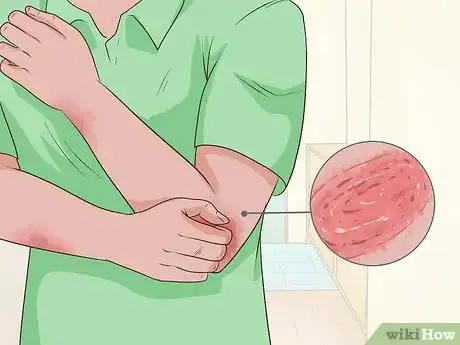


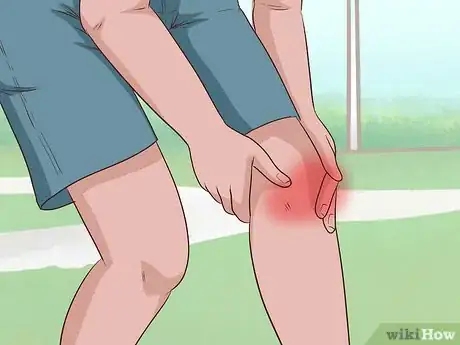


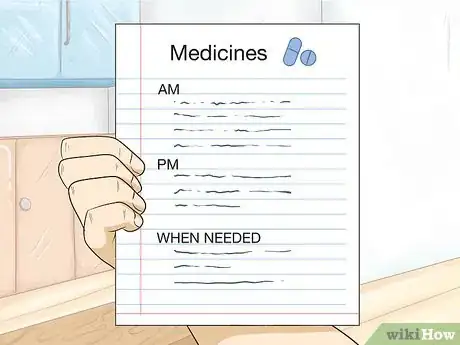

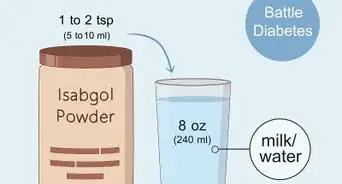




















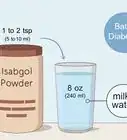







































Medical Disclaimer
The content of this article is not intended to be a substitute for professional medical advice, examination, diagnosis, or treatment. You should always contact your doctor or other qualified healthcare professional before starting, changing, or stopping any kind of health treatment.
Read More...